Make sure you never miss an update. subscribe to the progress update newsletter
In this issue:
Features
Fish Forever Program Round-Up
What We’re Reading
Features
 Speak Up for Blue Podcast
Speak Up for Blue Podcast
Dr. Steve Box recently joined Andrew Lewin and the Speak Up for Blue podcast for a deep dive into Fish Forever. They discussed Rare’s community-led approach to conservation, pride as a motivator for responsible fishing behaviors, the most effective places to establish Marine Protected Areas, and building networks for social and ecological change. Speak Up for Blue is on a mission to empower listeners to live for a better ocean.
 A New Case Study Highlights the Pathways for Community-based Fisheries Management in the Philippines, Indonesia, and Brazil
A New Case Study Highlights the Pathways for Community-based Fisheries Management in the Philippines, Indonesia, and Brazil
In 2020, Rare analyzed the successful legal, regulatory, and institutional pathways undertaken to establish managed access with reserves (MA+R) for small-scale fisheries in the Philippines, Indonesia, and Brazil. The analysis identified how local fishing communities can secure and strengthen access rights to fisheries resources at the appropriate geopolitical scales, and highlighted the common elements needed for successful MA+R.
 Rare Wins 2020 BCI Award for Ocean-Related Climate Solutions
Rare Wins 2020 BCI Award for Ocean-Related Climate Solutions
Fish Forever in the Philippines won one of The Blue Climate Initiative’s 2020 Community Awards for its promising community-based ocean strategies to combat climate change. As part of this award, Fish Forever is expanding a network of climate-resilient communities in the Camotes Islands.
 Hello 2021—Are You the New Super Year?
Hello 2021—Are You the New Super Year?
Before the pandemic hit, 2020 was going to be nature’s super year—the year that defined how we tackle our climate crisis and other global environmental emergencies. According to Lisa Schindler Murray, Rare’s Senior Manager for Policy and Partnerships, 2021 can now be the super year for ambitious global ocean-climate action if we focus on two key ocean-climate topics…
Fish Forever Round-up
Our Global Network
*Real-time program data. For more details, see https://portal.rare.org.
25 global events, 21 policy wins, and 46 policy commitments expand the enabling environment for Managed Access with Reserves: By engaging in 25 high-level global events in the last two years, Rare has positioned the need for sustainable small-scale fisheries as a necessary solution to international challenges. Examples of local actions delivered by local voices at these discussions make a case for more significant political and financial support for the sector. They also showcase how Fish Forever’s vision of balancing effective protection with sustainable production can deliver on international goals, national commitments, and COVID-19 recovery. Our recent participation includes:
- Convening an international group of local government officials to introduce the vision of aligning local leaders around the world to champion coastal fisheries reform and prioritize coastal communities as coastal zone stewards. These locally-elected officials from Honduras, Mozambique, Brazil, Indonesia, and the Philippines—all early adopters of the leader pledge—will form the core team partnering with Fish Forever to build this global movement.
- Representing the Nairobi Work Programme’s Expert Group on Oceans at the UNFCCC’s Ocean and Climate Dialogues—the UNFCCC’s first global event related to ocean-climate action. Rare also joined the SBSTA Ocean and Climate Change Dialogue session to Consider How to Strengthen Adaptation and Mitigation Action (a first-of-its-kind session) and co-developed a policy brief regularly referenced by government participants.
- Collaborating with the Ocean Climate Ambition Summit organizers to extend the momentum from the UNFCCC Dialogues. The Summit provided an esteemed platform to launch Enhancing NDCs: Opportunities for Ocean Based Climate Action, a policy paper Rare co-authored with WRI and others as part of WRI’s “Enhancing NDC” series focused on ocean actions. The paper references Rare’s Fishing for Climate Resilience project as an example of improving SSF’s resilience through EbA.
- Serving as an official observer in the 34th Session of the UN FAO Committee on Fisheries (COFI), at which FAO members discussed progress and challenges related to fisheries and aquaculture. Through COFI and other platforms, Rare continues to partner with national governments and stakeholders to highlight and elevate small-scale fishing communities’ contributions. COFI34 marked the 25th Anniversary of the Code of Conduct for Responsible Fisheries.
Philippines
Google map of the Pandan municipality.
Fishers Propose Amendments to Pandan Municipality’s Fisheries Code: As part of their efforts to improve law enforcement and rehabilitate their fishing grounds, coastal fishers of Pandan—a municipality in the Philippines Western Visayas region—joined local government officers to provide inputs on marine reserve design and zoning for the proposed Municipal Fishery Code amendment. Rare facilitated the workshop for fishers and senior staff from the fisheries, environment, agriculture, tourism, disaster risk reduction, market, and zoning offices.
Finalizing Fisheries Management Areas and Other 2020 Policy Wins: Despite the many challenges COVID-19 created, Fish Forever Philippines achieved notable policy advancements to increase fisheries’ resilience and create a more enabling environment for small-scale fisheries protection and support. Of note, Rare:
- Formalized numerous government agency partnerships to establish 12 Fisheries Management Areas;
- Guaranteed support from more than 100 local government units to protect the municipal fisheries zone (from the shore out to 15-kilometers) and small-scale fishers’ preferential rights to coastal resources (as guaranteed by the Philippines Constitution);
- Submitted inputs to relevant government agencies to ensure inclusion of community-based coastal fisheries management in the Philippines’s Nationally Determined Contribution; and
- Formalized a working group, in partnership with the Department of Agriculture-Bureau of Fisheries and Aquatic Resources, to further develop the Philippines’ Blue Finance Framework.
Indonesia
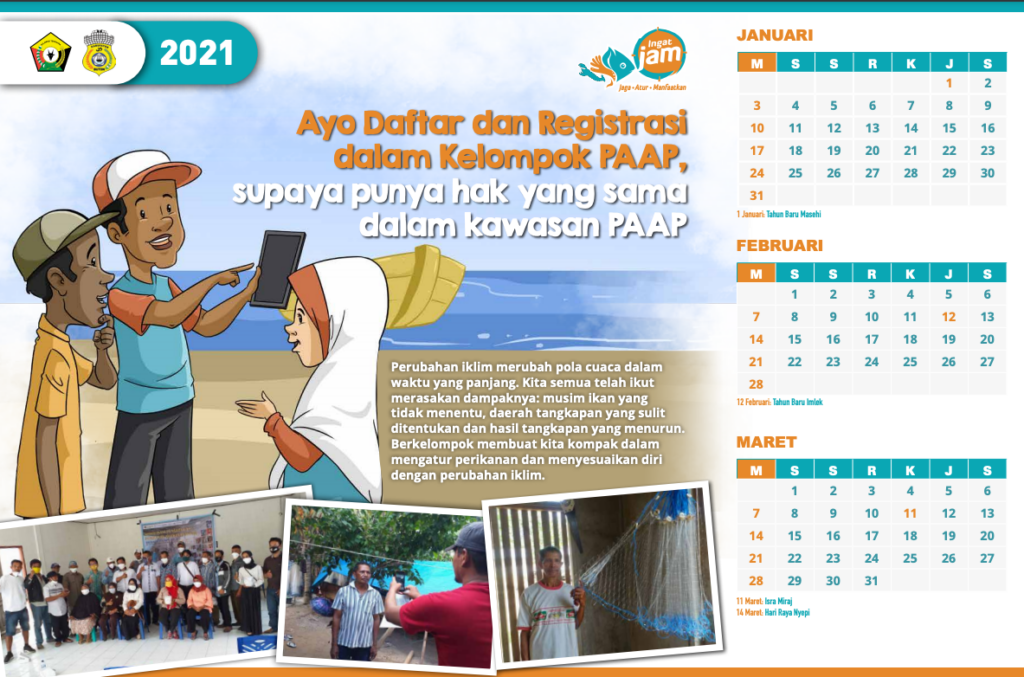
Adapting Financial Inclusion for Indonesia’s Small-Scale Fishing Sector (+ Southeast Sulawesi’s First Savings Clubs!): Fish Forever Indonesia is setting up systems for community financial resilience – savings clubs, financial literacy trainings, and access to formal financial services – to enable long term planning and allow households to capture, retain, and build wealth from their local fisheries. To date, over 300 fishers, fish buyers, and fish processors are engaged in various financial inclusion programs; of this, Rare has set up 6 savings clubs, reaching 85 households as the first pilots for adapting savings clubs to the local context. Members have used the funds for medical expenses, business development, investments, education, and boat repair. In rural communities in the Konawe Selatan district, Rare has also taught women to secure loans from their savings clubs. Now more than ever, these systems are critical to the well-being of coastal communities impacted by COVID-19’s supply chain disruptions and the sudden impacts of natural disasters.
Developing Provincial Fisheries Management Plans in West Papua and Southeast Sulawesi: Rare recently convened two virtual Focused Group Discussions related to developing provincial fisheries management plans. In West Papua, the discussion among civil society organizations (including WWF, TNC, University of Papua, Maya Tribe Council, Nazareth Foundation, and the USAID-SEA Project) centered on inputs to the Rare-drafted West Papua’s Governor Regulation guidance for developing customary fisheries management. Once approved and enacted by the provincial government, the regulation will provide coastal village communities guidance and standardize customary management conditions. The regulation is based on Rare’s successful experience, and lessons learned in supporting and facilitating a customary-based Managed Access plus Reserves (MA+R) areas network in Raja Ampat District with the Maya Tribe Council, 29 coastal villages prominent figures, and the Raja Ampat District Government. In Southeast Sulawesi, Rare facilitated discussions for working group members of the Governor-established Southeast Sulawesi Fishery Management Forum of its provincial Fishery Management Plan (which Rare also helped develop). Participants included Deans of Faculty of Fishery and Marine Sciences from 4 universities, MMA officials, and the Bahari Foundation. The goal was to align the Provincial Fishery Management Plan with MMA daily job functions and the Provincial Marine and Fishery’s 5-year Strategic Plan and Annual Plan.
Using Community Surveillance to Address Poaching and Support New Fishing Rules: Rare recently facilitated a webinar, ‘Collaborations in Illegal Unregulated and Under-Reported (IUU) Surveillance of Small-Scale Fisheries,’ with 20 Southeast Sulawesi government representatives from the Marine Police, Navy, Fisheries Surveillance Province Division, and district governments. The meeting identified strategies and approaches for coastal communities to combat illegal and destructive fishing activities and build compliance with new fishing regulations. These same agencies provide technical support in drafting fisheries management plans for the province’s fisheries management bodies for approval by the provincial government in 2021.
Brazil
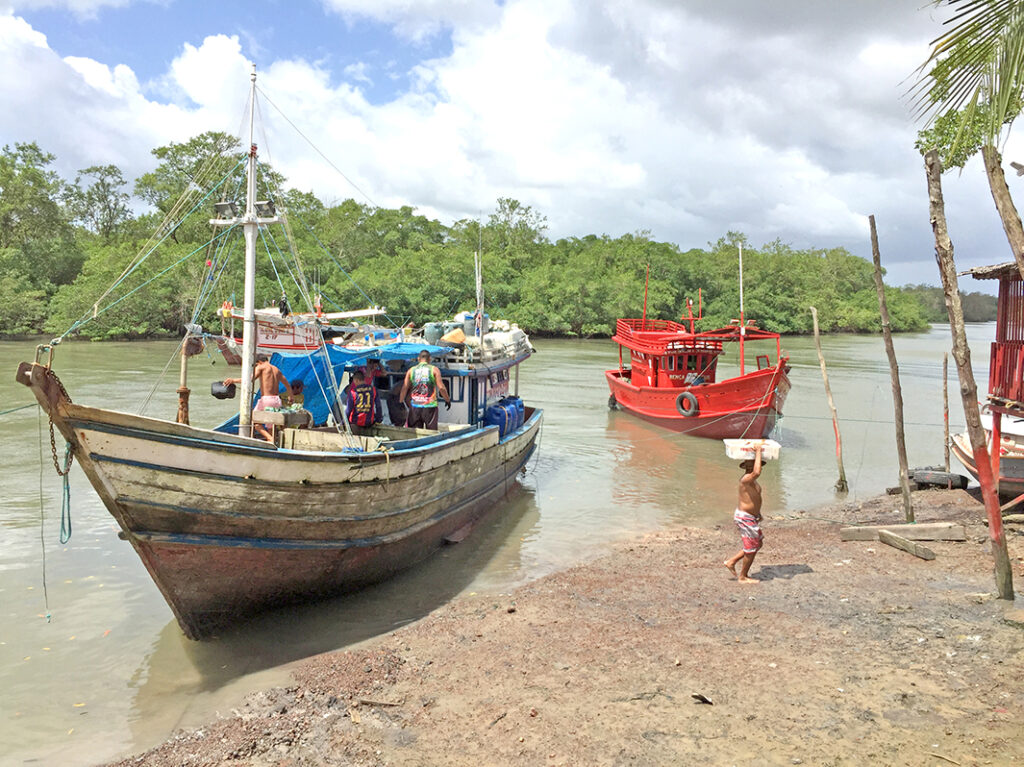
Strengthening Fisheries Management and Financial Inclusion: In January, Fish Forever Brazil’s first financial management training workshop, conducted by CONFREM Pará, was held at four RESEX areas. The workshop kicked off with a discussion about fishers’ rights and RESEX associations’ duties to benefit the coastal fishing families within the RESEX areas. The program is also in the process of improving fisher registration processes for RESEX beneficiaries and users and expanding savings clubs to new RESEX areas in partnership with local associations, CONFREM, and environmental agencies.
Assessing the Effectiveness of Brazilian MPAs: Rare, in partnership with ICMBio and volunteers from RESEX Caeté-Taperaçu, carried out ecological monitoring of crab and mangrove vegetation between December 2020 and January 2021 as part of MONITORA—a national program for monitoring biodiversity and associated ecosystem services. The program aims to assess the effectiveness of Brazilian MPAs related to climate change adaptation and natural resource management.
Pacific Islands: Palau and Federated States of Micronesia (FSM)

Staff and Partner Readiness Trainings Underway in FSM and Palau: The Fish Forever Global Hub has set up Google Classrooms for Rare and its co-delivery partners, Micronesia Conservation Trust and Conservations Society of Pohnpei (in FSM) and E’biil Society (in Palau). The participants are going through a series of virtual and self-directed modules on facilitation, coaching, profiling, and key elements of Fish Forever to prepare them for the sessions they will be conducting with site implementing teams from communities in Pohnpei, Melekeok, and Nguial.
Mesoamerican Reef (MAR)
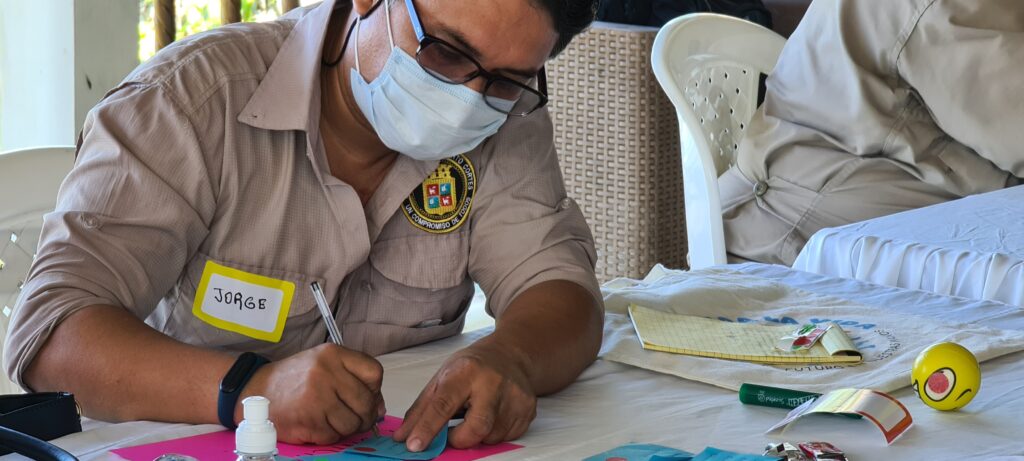
A new reserve: Fish Forever established another fully protected reserve in La Venada, Omoa, designated through a fisher-led process. The reserve, which covers 13.6 km2 of seascape (or 5.25 sq mi, equivalent to over 2500 football fields), includes 2.2 km2 of critical habitat (coral reefs, seagrass beds, and mangroves.
Hurricanes Eta and Iota: As a result of these devastating hurricanes, local government and community partners expressed the need to prioritize and speed up coastal ecosystem protections to build resilience. Rare held multiple discussions and workshops with mayors and other local actors from hurricane-affected areas who identified climate change, environmental degradation, and human activity as key causes of the harsh impacts experienced. They also highlighted the need to pursue nature-based solutions and ecosystem-based approaches to adaptation and mitigation to protect the oceans and fisheries as critical safety nets for local communities. Rare hosted two events in December 2020 to recognize the heroic efforts of fishers who participated in rescue efforts and are donating their catch to families in shelters.
Advancing financial literacy in Honduras: Rare recently piloted innovative tools that adapt popular games, like Bingo, to teach critical financial concepts. These tools strengthen fishing household resilience by increasing their knowledge on managing finances and retaining wealth from fishing activities. Community reception to the tools has been high, with older community members remarking how much they have learned about complex topics like fisheries management, despite their age. To date, Fish Forever has established 18 savings clubs, reaching almost 300 households and collectively saving more than US$35,000. In a region where the average monthly household income is approximately US$268, saving 3% (on average) of their monthly income creates a substantial financial safety net.
Mozambique
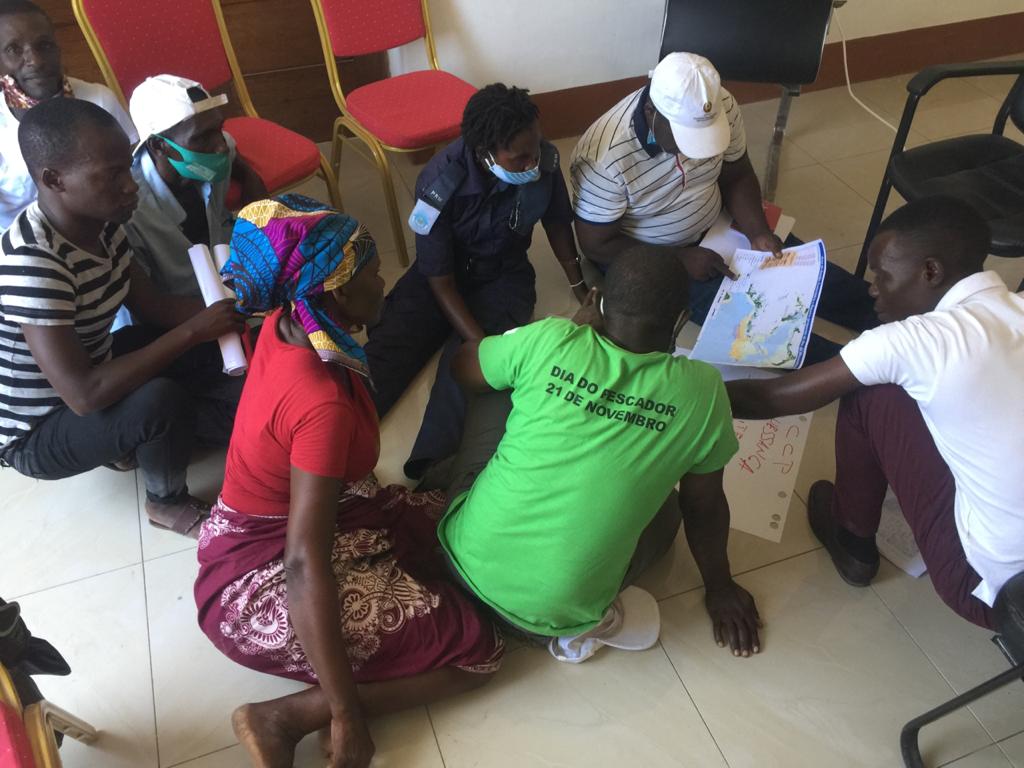
Finalizing no-take reserve boundaries: Using no-take reserve maps, Fish Forever finalized no-take reserve boundary verifications totaling 225 km2 (87 sq mi.)—the equivalent of over 2,500 football fields. These reserves are distributed across 19 communities in 7 districts and four provinces. Under the recently revised Fisheries Maritime Regulation (REPMAR) legislation empowering community-based fisheries management, we anticipate Ministry of Fisheries approval related to management plans later this year.
What We’re Reading
Immediate impact of COVID-19 across tropical small-scale fishing communities (Feb 2021)
Campbell, S.J., Jakub, R., Valdivia, A., Setiawan, H., Setiawan, A., Cox, C., Kiyo, A., Djafar, L.F., de la Rosa, E., Suherfian, W., and Yuliani, A., 2021. Immediate impact of COVID-19 across tropical small-scale fishing communities. Ocean & Coastal Management, 200, p.105485.
We studied the immediate impact of COVID-19 on small-scale fishing communities across Southeast Sulawesi, Indonesia using fisheries data and targeted interviews. We found that active fishers and traders declined by more than 90% after the pandemic’s onset, and catch per fishing trip increased across fishers that remained fishing. However, the average price per kilogram of fish declined. High-value fisheries, usually destined for international export, were more impacted than lower-value fisheries sold locally. Interviews revealed that over 50% of fishers and traders believed that low demand for fish and price declines disrupted their lives. About 75% of male and female fishers coped by continuing fishing, highlighting the lack of alternative livelihoods.
Adapting to climate change in small-scale fisheries: Insights from indigenous communities in the global north and south (Feb 2021)
Galappaththi, E.K., Ford, J.D., Bennett, E.M., and Berkes, F., 2021. Adapting to climate change in small-scale fisheries: Insights from indigenous communities in the global north and south. Environmental Science & Policy, 116, pp.160-170.
This study assessed two climate-sensitive indigenous small-scale fisheries to understand how these fisheries-dependent communities respond to climate change impacts. The authors found that these communities use two key adaptive strategies: diversification and adaptive co-management; and that resilient communities rely on community-based institutions, effective social networks, and have a high level of flexibility.
Financial inclusion to build economic resilience in small-scale fisheries (Aug 2020)
Pomeroy, R., Arango, C., Lomboy, C.G. and Box, S., 2020. Financial inclusion to build economic resilience in small-scale fisheries. Marine Policy, 118, p.103982.
This review explores the current barriers to financial inclusion (access to formal financial services) of small-scale fishing households. The authors discuss barriers such as limited financial capability and literacy, lack of assets for collateral, accessibility of financial institutions, and lack of formal identification. The paper discusses solutions to address these barriers, including increasing financial literacy and data collection and providing diverse financial services, which may help reduce vulnerability and improve poor fishing households’ economic resilience.
Ecology and the science of small-scale fisheries: A synthetic review of research effort for the Anthropocene (Feb 2021)
Smith, H., Lozano, A.G., Baker, D., Blondin, H., Hamilton, J., Choi, J., Basurto, X., and Silliman, B., 2021. Ecology and the science of small-scale fisheries: A synthetic review of research effort for the Anthropocene. Biological Conservation, 254, p.108895.
This review analyzed 303 peer-reviewed publications on small-scale fisheries in ecology journals and found that the research is young, interdisciplinary, and expanding. However, the authors found that very few studies have experimentally assessed how interventions affect desired ecological outcomes, which are important to assess small-scale fisheries’ sustainability.
Shining light on data-poor coastal fisheries (Jan 2021)
Exeter, O.M., Htut, T., Kerry, C.R., Kyi, M.M., Turner, R.A., Witt, M.J., and Bicknell, A.W., 2021. Shining light on data-poor coastal fisheries. Frontiers in Marine Science.
This study analyzed the efficiency and application value of nighttime satellite imagery, combined with landings data and GPS-tracked vessels, to estimate an inshore and vulnerable fishery’s fishing effort in Myanmar. By quantifying the number of remotely-sensed boats per month and extrapolating data from fisher logbooks, the authors provided fine-scale spatiotemporal estimates of the fishery’s effort, value, and biomass removal. This approach shows that novel and cost-effective approaches to obtain fisheries data could help inform sustainable fishery and improve management.
A global network of marine protected areas for food (Sept 2020)
Cabral, R.B., Bradley, D., Mayorga, J., Goodell, W., Friedlander, A.M., Sala, E., Costello, C., and Gaines, S.D., 2020. A global network of marine protected areas for food. Proceedings of the National Academy of Sciences, 117(45), pp.28134-28139
This study analyzed how MPAs can be explicitly designed to improve fisheries yields. Based on data on fisheries catch, distribution, and life history for 1,338 commercially important stocks, the authors showed that strategically expanding the existing global MPA network by just 5% can improve future catch by at least 20%, resulting in 9-12 million metric tons more food annually. This analysis demonstrates how food provisioning could be a major driver of MPA design by conserving and securing food for the future.
Fish Forever: A solution to coastal overfishing – delivered by empowering communities through clear rights, strong governance, local leadership, and participatory management – that protects essential fish habitat and regulates fishing activities to replenish and sustain coastal fisheries.
Goal: To deliver replicable and scalable community rights-based management across ten countries, using a global network of 500 local leaders to secure livelihoods for one million fishers, alleviate poverty, ensure food supply, and protect coastal ecosystems from chronic threats.
Fish Forever Countries: Philippines, Indonesia, Mozambique, Brazil, Honduras, Guatemala, and the Pacific Island countries of Palau and the Federated States of Micronesia.
Fish Forever is possible thanks to the support of many, including the following current donors:
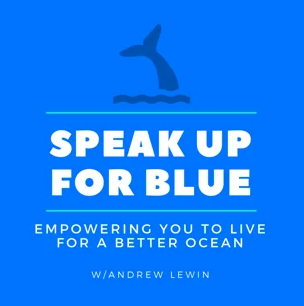 Speak Up for Blue Podcast
Speak Up for Blue Podcast A New Case Study Highlights the Pathways for Community-based Fisheries Management in the Philippines, Indonesia, and Brazil
A New Case Study Highlights the Pathways for Community-based Fisheries Management in the Philippines, Indonesia, and Brazil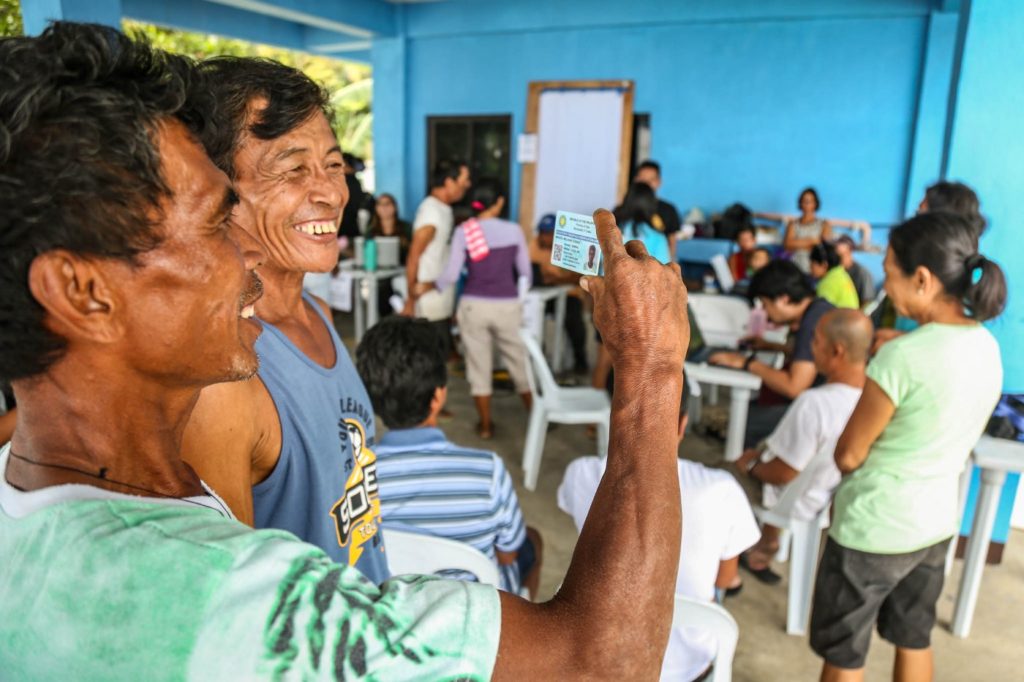 Rare Wins 2020 BCI Award for Ocean-Related Climate Solutions
Rare Wins 2020 BCI Award for Ocean-Related Climate Solutions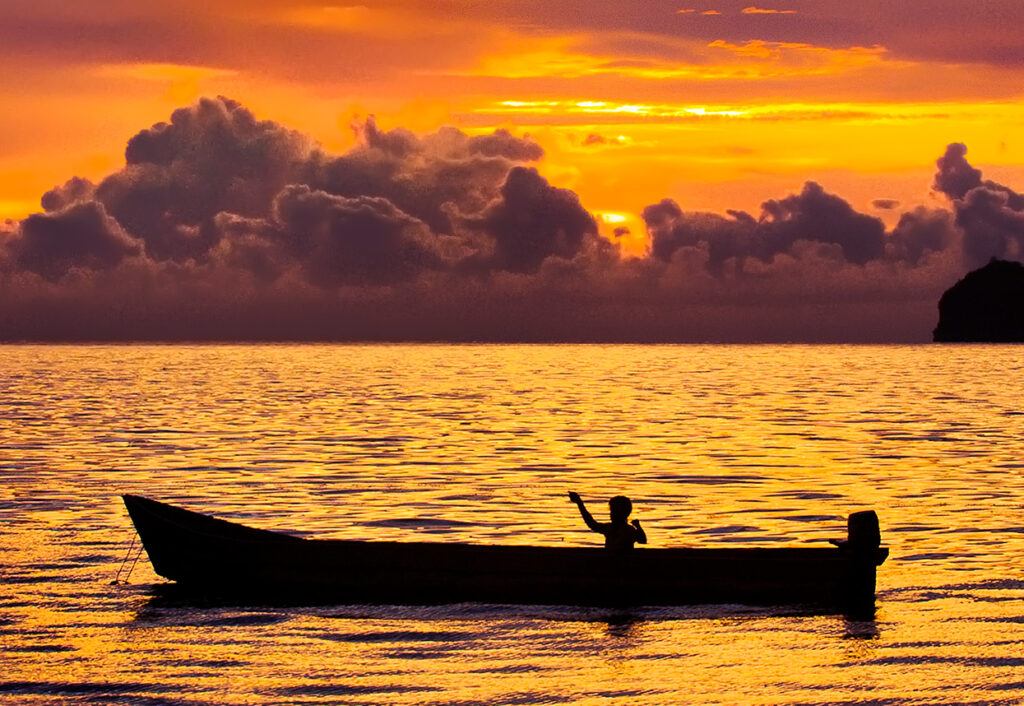 Hello 2021—Are You the New Super Year?
Hello 2021—Are You the New Super Year?